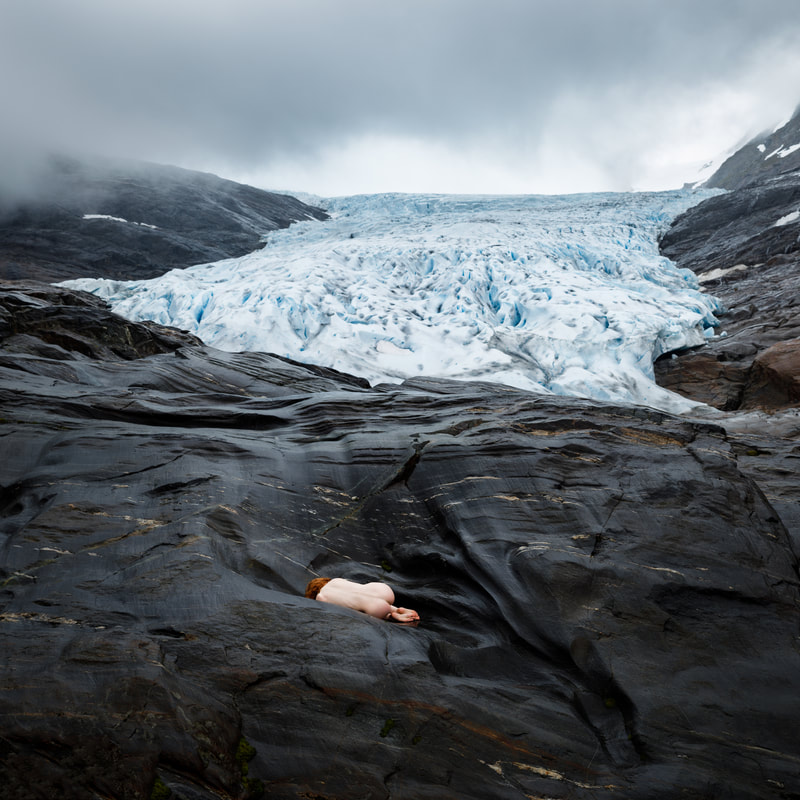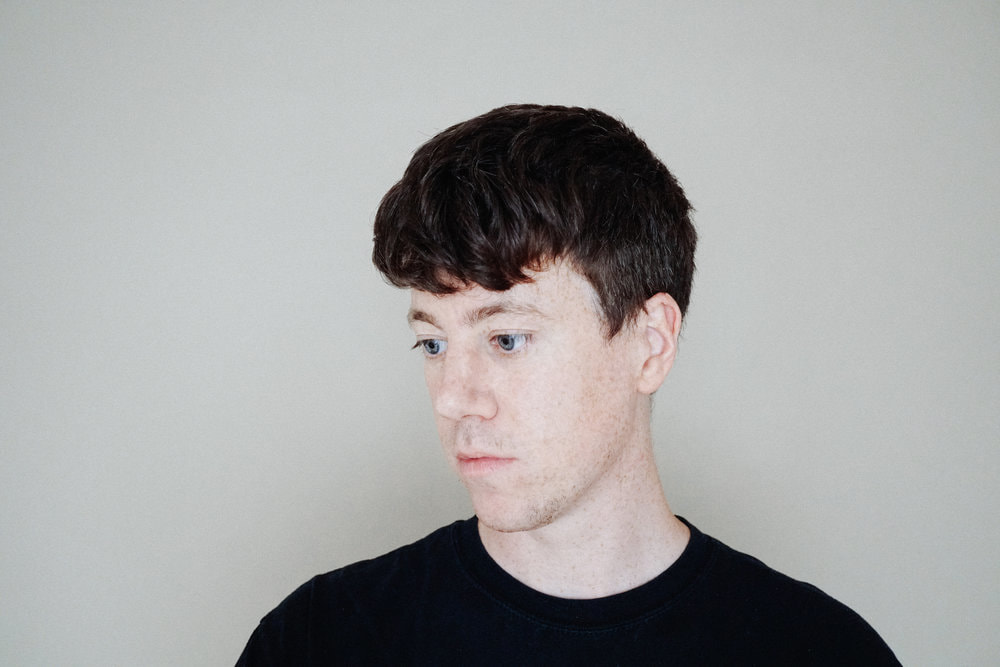Gwilym's goal is to explore how music can be used to communicate the implications of climate change, as art has a way of encouraging emotional responses that science alone does not. Terminal Flow is a fantastic example of putting into sound the retreat of large sheets of ice in faraway places that most people will never see, but that will eventually impact all of us. While the minimal and fragmented compositions are shaped by a process of data sonification and performed by an algorithm, the personal touch is felt in the deliberate timing and unexpected silences between notes. This data was not meant to become melody, yet when listening to "Hellstugu" it's easy to imagine it was always supposed to be expressed on a keyboard. Gwilym's method for turning ice into sound waves starts simply with a chord choice, which is detailed on his website:
To start with a chord sequence, or in some cases one chord inverted, was chosen to function as a 'sound' identifier for each glacier. This is played for four bars to establish itself as a 'hook' representing a glacier. Data from frontal variation length changes were automated to a Max for Live probability plugin, with one year of time in glacier readings being equal to half a bar of time in music. As data indicates glaciers have retreated, the probability parameters lower. This decreases the probability of notes sounding, resulting in chord sequences that represent the glaciers being pulled apart as data indicates their retreat. Consequently, the texture of the pieces and their fragmentation, show the extent to which the glaciers have retreated as a result of climate change over the time period.
There are some plans for live performance and further development, but they won't be shared until later this year. In the meantime, take a listen to Terminal Flow and learn more about its creation below.
How did you end up working on this project in summer of 2017? Why melting glaciers?
I was working in research with 3D3 Design at University of the West of England in Bristol and spent the first part of the year looking at ways creative practice communicates social issues. By the summer I'd arrived at the method of composition through a series of tests. I originally expected to focus on rising sea levels as a subject, though went with glaciers because of the large amount of data freely available and because they're a powerful indicator of the effects of climate change. [But] the data was awful for sonifying. It is generally agreed that a varied and dynamic data source is needed for engaging sonfiications. Because of the rate the glaciers have retreated, the data sinks steeply and doesn't vary. This has resulted in each track basically being an extended diminuendo.
Why these four Norwegian glaciers?
The glaciers I focused on are Engabreen, Bondhusbreen, Hellstugubreen and Jostedal. I chose Norwegian glaciers simply because of the amount of data available. NVE (the Norwegian water board) has been taking readings dating back well over 100 years. The particular four that I used in Terminal Flow were chosen because their data curves appeared to be the most musical or because of their cultural significance. I haven't visited the sites in person but plan to in the next year. The time span is put in brackets in the track titles and is between the years of 1916 and 2016 (the last year readings were available for at the time of production).
How did you go about creating the sonification method?
I tried many approaches to sonification and did a number of tests based on ways that other people had interpreted data musically in the past. Everything I tried sounded pretty bad for many months, interesting but not something that many people would find good to listen to. The method of using chords that break apart came from trying to find a way to interpret the data that still gave a degree of control over melody and harmony. Each approach before this point resulted in dissonant drones or very messy melodies that I felt didn't really represent the subject appropriately.
Why use only piano?
I stuck with one instrument because I felt it made a clearer sonic indicator for the glacier; one sound, one glacier, glacier retreats, sound fragments. I considered using manipulated sounds in place of traditional instruments, although the piano seemed to be the right aesthetic in the end, I was after a cold, intimate sound. There are plans to revisit the project with other sounds and and maybe represent a few different sets of data at once, for example rising sea levels along side glacier variation.
In writing about this EP you say it is, "a collection of pieces that look at how music can be used to communicate the implications of climate change... the results... make changes to glaciers during this time perceptible through the music." Why do you see music as an appropriate medium for communicating climate change and its impacts?
I think any medium that is able to communicate a message is appropriate for communicating climate change and its impacts, especially given the severity of the crisis. Music and the arts in general I think can do this in a way that stimulates more of a visceral or emotional response than didactic approaches, which can be useful. Music being time based also has the potential to signify change over time (very compressed time), one attribute that Terminal Flow focuses on heavily.
What are the advantages of music in conveying scientific data, compared with a published study or perhaps a story in the news?
Music can communicate multiple and complex data sets very quickly in ways that a news story would struggle with. It also has the potential to stimulate different kinds of responses as mentioned above. There are disadvantages though, often data will be significantly adapted through the process of producing art. This brings forward questions of how accurate these works will be in representing information. They are also subject to highly personal aesthetic choices.
Many people might say that the arts and sciences are vastly different worlds that are run by two very different types of people, and see no connection between the two. What would you say to someone who expresses such an opinion?
I'd agree to some extent. There is a danger that using scientific data as a source for creating creative works could lead to a change in perception of the validity or 'seriousness' of the original research. To me, it does seem like a natural pairing though. Science is able to uncover information and record data, which the arts can to communicate in new ways and bring to new audiences. For some people Terminal Flow may be more effective in communicating changes to a glacier over 100 years, than 100 individual frontal variation length change glacier readings in a list. Ultimately, what Terminal Flow has ended up being is an elaborate musical version of a graph.
As a musician, why is it important for you to use your medium of expression to create conversations around climate change?
The answer is, I really don't know. I've always written about nature and the weather, maybe it comes from growing up in a rural area. Climate change seems to be the logical result of that line of thought.
Who do you hope listens to this EP? What do you hope they might learn or discover because of it?
I'd be happy if anyone listens to it really. If someone listened to the work and got a sense of how quickly we're loosing glaciers to climate change, especially in Europe, and this sparked any level of curiosity or appreciation then that would be amazing.


 RSS Feed
RSS Feed